|
In part 4 of ‘Broken Weight Loss Mindsets’, we’re going to look at the habit of proactivity. And how often, due to “faulty thinking patterns”, many people are proactive in the wrong areas - or at best, certainly not proactive in the areas that matter. As a result of this, it causes poor eating habits, and unnecessary weight gain. Which is then compounded by a misunderstsnding of the what the REAL problem is. Other things get blamed - like “this just doesn’t work” and “I’m just too busy” - but those AREN’T the real issues. By the way, you can check out the other posts in this series here: part 1 part 2, and part 3, Pause for a second and ask yourself what you MAKE time for in your life, and what you “try to find time for”. Really try to disceminate between the two - what you truly MAKE time for. And what you either try to find time for, or what you fit into spare blocks of time as they arise. By the way, “making time” for something, isn’t “I make sure it gets done by the end of the day”. That’s not making time - that’s finding time to fit it in. For clairty, making time, means 1) Planning it in advance 2) Scheduling it for a specific time What’s on your list of “make time for” ? Chances are, if you’re honest with yourself, the list isn’t huge. That’s normal. It’s normal to think we’re on top of things and making time, when in reality we’re just ‘somehow getting a load of things done” through sheer brute force. Expand your thinking not just from the day to day, but to your life in general. What things do you ALWAYS make time for ? What do you ALWAYS a) plan in advance and b) schedule? Here’s a list of the typical things that get planned and scheduled (diarised): - Hair appointments - Holidays - Doctors appointments - Taking the kids to their weekly club - Agreeing to meet a friend for coffee - Sunday lunch out with the fam What’s the common theme here? They’re all ‘appointments’ of some sort. An agreed time and place in which to do something, go somewhere or meet someone. Now, ask yourself this: How often do you ‘make appointments’ for the following: - Sitting down the write a meal / menu plan for the week / next 3-4 days - Sitting down to write a shoping list based off that meal / menu plan - Going shopping with a very clear list of things to buy, based off a consciously thought-out meal plan - Blocking out 30 minutes to find 10 new recipes on sites like bbc good food, so that the excuse of “I’m bored with what I eat” vanishes into thin air - Scanning your week ahead, to asess when and where you might ‘slip up’, or even just be likely to over eat and drink? Again, the list could go on - the above is to make a point - and contrast it against the previous list of appointments. It’s not normal or healthy, to plan every minute of our life. It’s too restrcitive, and stuff comes up that knocks us off course. But if you have a weight problem - which is an eating problem 90% of the time - then if you’re prioritising a hair appointment and taking little Jonny to cubs, but not prioritising organising your eating intentions for the week, then you have a “broken weight loss mindset”. You have a ‘faulty thinking pattern’ around what else you should be prioritising. Of course, your hair needs cutting, and jonny does need to go to cubs. But addressing your weight problem (and this post is speaking to those who are unhappy with their weight) will do more for your self-esteem than a new perm. And Jonny will no doubt value seeing his mum healthy and happy, as much as he does learning how to tie a reef knot. Exercise: Block out one hour, right now, for Sunday. Literally do that right now. Morning’s are best, as the later things get left, the more likely we are to ignore them. Make that appointment with yourself, a non-negotiable commitment. Decide what you will use that 60 minutes for. Suggestions: 1) Plan your week’s meal for you / the family, and write a shopping list based off of it. SCHEDULE when you’ll go and buy that stuff 2) SCHEDULE your exercise for the week - ideally at least 3 days of a minimum of 30 minutes. Even if it’s just going out for a brisk walk, which may involve skipping Eastenders on an evening. 3) Block out and schedule the following Sunday’s appointment with yourself so that you always have a point in time where you can review things. However, whatever you think will work for you, do it. But make that appointment with yourself right now - so that you can start blocking out other IMPORTANT appointments with yourself - based on what you want (which, if you’re reading this series, includes addressing your weight and your health). Fix that broken mindset around what gets prioritised and what doesn’t. It’s a game changer :)
1 Comment
In part 1 of this series, we looked at "messed up thinking" around expectations.
In part 2, we looked at "messed up thinking" around dealing with setbacks. In part 3 today, we’re going to look at the psychology of money management - and how we can use some of this common sense to manage our eating and weight loss / management. Let’s say that you’re wanting to save for a family holiday. The cost of the holiday is £3,500. In order to save for the holiday, you need to create a surplus - eg save more than you earn - of £3,500. You want to save this money in the space of 14 weeks. So you need to save £250 a week. Up until now, you’ve been spending about £500 a week on living expenses, socialising, and other bits. So as things stand, it’s impossible to save. However, because that sunny holiday is so important to you, you make some diligent decisions, and reduce your outgoings to £250 per week. Which leaves another £250 of ‘surplus’ - you’re doing the right things and are on track to achieve your goal of jetting off to sunny Marbella and getting your white bits out! Now all you need to do is repeat this every week. However…… You get to Friday. And the broken mindset kicks in. “Whoop whoop, it’s Friday. And I’ve been sooooo good all week. I’ve not spent a penny over my £250 budget. To reward myself for being awesome, I’m gonna let my hair down a little”. And with that, you proceed to go on a shopping spree and splurge £250 on ‘stuff’. You wake up on Monday. “Sh*t!……I’m back to where I was a week ago. I’ve made no progress to my goal. But I was sooooo good all week. It’s just not fair. Saving money just doesn’t work for me.” This analogy should now be obvious. It’s how you view weekends. It’s seeing life as something to divide into two separate parts. 5 days of work and ‘trying to be good’. And 2 days of ‘let’s completely stop giving a shit, after all life is for living’. Spending all your surplus on a weekend, is the same as eating back the calorie deficit you creates during the week. It just doesn’t work. Of course, weekends are often times for a bit more socialising or a meal out. That’s not the point. The point is that it doesn’t matter whether you - or I - like it or agree with it. It’s just a fact of life that if you “blow all your savings on a weekend”, you’ll have nothing to show for your efforts. “Lifestyle Change” is a term that’s thrown around a lot. In reality it means “mindset change”. It means changing your outlook. Changing your attitude and beliefs. It means asking if the current belief of “weekends are for escaping, via the medium of too much food and drink” is working for you. And if you’re stuck in this pattern, then asking what you can expect to EVER change, if you don’t first change how you think. Even if you ‘saved’ £250 during the week, and then spent £150 on a weekend, you’d still having some savings. It just means it’ll take a tad longer to pay for your holiday. The goal is simple. Don’t allow weekends to blow every penny you saved during the week. Because if this is a weekly occurrence, you’ll be stuck …. Forever. Get your thinking right. The rest will follow 🤓 In part 1, we dug into ‘expectations’ - and how we have these weird little (and unhelpful) beliefs that we never question. In part 2, we’re going to look at how we respond to minor setbacks. I’ve often used an analogy with clients over the years, which centres around what we do when we drop our phone. Ironically, I actually dropped my phone yesterday - and a corner of the screen cracked - so this is super relevant! I don’t know about you, but when I drop my phone, and it gets a crack, it’s a tad frustrating. Yep, I’ve got one of those screen protector thingies, but it’s still annoying. You have to peel it off and then order a new one, and then attempt to put it on straight again. Anyway, the point is that dropping and cracking your phone, is annoying. However………what I don’t do, and I presume you don’t do, when our phones are dropped and cracked…….is any of the following: 1) Whip out a hammer and start smashing the sh*t out of it 2) Hire a JCB and drive back and forth over it 3) Grab a rifle and use it as target practice 4) Drop it in a tub of acid 5) Use it as charcoal for a bbq We don’t do those things, for two reasons: Reason 1 is because they’re stupid. Reason 2 is because they’re a disproportionate response to dropping your phone and getting a small crack in it. Just because something goes slightly wrong, it’s stupid and disproportionate to then make matters worse. But that’s what many folk do with their eating. They’ll have a little “slip up’ - maybe a minor binge on a weekend. And instead of just thinking “ah well, that’s life. Better take more care next time”……… they proceed to start mainlining doughnuts and Haribos! In what world of logic, is this a sensible and proportionate response to having a big of a binge? It’s the equivalent of smashing your iphone up just because you dropped it and cracked it. This series of ‘broken mindsets’ is all about getting your thinking ‘right’. What goes on between the ears dictates what goes on behavour-wise. We all have faulty thinking patterns (like little software bugs) - but we can change them pretty easily if we want to. We just first need to be aware of them. And then commit to correcting them. If the response is then “Oh, it’s really hard, it’s just the way i am”, then you’re fighting to defend a mindset that doesn’t serve you. You have to then ask yourself WHY you’re so addcicted to the struggle. Personal responsibility starts with accepting that we’re all in control of and capable of changing our ‘scripts’ - the stories we tell ourselves and the mindsets we hold. Even if you just practice applying part 1 (expectations) and this part 2 (a more ‘adult’ response to setbacks), you’ll see signifcant changes in your eating and weight loss efforts :-) Over to you! This is the first of a 5-part series about mindset aspects of losing weight.
My intention is to use some day to day analogies of how we live our lives (completely unrelated to weight loss), and compare them to how many people approach and treat their weight loss attemps. The purpose of this is to try and ‘hold up a mirror’ so you can see just how ludicrous some behaviours really are. In this part 1, we’re going to look at ‘expectations’. “Boring” I hear you cry. “Yeh yeh, I know I should be more realistic….” Of course you know this. But the whole point to all of this, is that generally speaking, you DO know what to do - it’s just doing it that’s the problem. So with that in mind, consider the following……. After waking up feeling a bit fuzzy and grotty from too many vinos and maltesers last night, you scoff down a full english to take the edge of it. It gets to early afternoon, your head has cleared, and other than been a tad tired still, you feel much better. You make the decision to ‘sort yourself out’. You mentally profress to yourself that “that’s it, I’m going to clean up my eating and get back on track with my exercise”. All good so far. Not only do you tell yourself that, you actually START doing something about it. Right there and then in that afternoon. No ‘diet starts Monday’ for you! So, from 1pm to bedtime, you manage to quaff 2 litres of water, eat a huge salad full of goodness, and take yourself out for an hour’s walk. The pyschological benefits of doing this feel just as good as the physical ones. Now, what you DON’T do - you don’t even consider doing - is weigh yourself before bedtime to see the impact of this avo’s salad a trot. Why? Because you’re not stupid. You have ZERO expectation that one afternoon’s good work is enough to make any difference. However, subconsciously, you have a set expectation that 3 days, or certianly a week is DEFINTELY enough to make a difference. So you start weighing yourself again. At no point do you question why you think this way. You don’t ask: “where does 7 days as an arbitary measure of time, come from, that causes me to have expectations of weight loss? Even though I don’t have any expectations of weight loss in 1-2 days?” Now, tracking progress weekly is no bad thing. It can be helpful to keep an eye on it - but only from a bigger picture. To see TRENDS. “OVERALL, over many weeks, am I gradually going in the right direction?” But the point remains that ‘tracking progress’ (or keeping an eye on it) is not the same as ‘expectations’. Frustration comes from unmet expecations. If we have too many expectations of things beyond our control, we will be frustrated far too often. On the flipside, if you reduce your expecations of things you can’t control (weight loss, other people’s behaviours etc) ……and INCREASE your expecations of things you can control (YOUR habits and behaviours) then you’ll see things change dramatically. You begin to become less attached to the numbers on the scale. You begin to trust that by focussing on YOU - the numbers on the scale will change as a byproduct of your improved habits and behaviours anyway. The take home message today isn’t just “have more realistic expectations”. It’s 2 things: 1) QUESTION your beliefs regularly - with such things as “why do I have zero expectations of losing weight in 2 days, but absolutely expect it in 7 days? Where does that belief come from?” 2) Recognise that having too many expectations of things you can’t control, will cause frustration (which can cause compounding ‘bad’ behaviours), and instead focuss ‘inwards’, and have more expectations of yourself and the things you can control and work on. In part 2, we’re going to look at a cool little analogy between our smart phones, and our response when the scales don’t budge. Whenever something gets out of control, we need to rein it back in before it becomes WAY out of control. For many, eating habits regularly fall into that category. Of course, being in control 90% of the time, for years - forever! - means more than ‘quick fix tactics. It requires a long, hard look at yourself in the mirror, a compelling reason to want to change, and a deep personal commitment to be more disciplined. However, that’s not the topic for today. We all need some ‘goto’ methods for at least regaining some control over things from time to time - even if they’re just sticking plasters for a bigger problem. Here’s 1 simple thing you can do today, to get back on track a bit more..... Remove anything that’s a temptation. This is a favourite topic of mine - purely because I’m obsessed with “mindset”.....and I’ve heard so many back to front views on the topic of removing temptation. a) "ah but the kids / partner loves it all" How’s that story currently working for you? Is it helping or hindering? Is having plenty of biscuits for your kids more important than your health ? More important than managing your weight? Is having crisps and chocolate on tap more important to you and your partner, than one of your biggest challenges (eating) and being happy & healthy? b) "I don’t want to waste money" This story is what’s known as a ‘sunk cost fallacy’. It’s a mindset issue. You’ve already spent the money. You will not be out of pocket. Yes, you won’t have the crisps and chocolate as the replacement for the money, sitting in your cupboards. But you’ve openly said you’re “trying not to eat then”. Can you see how ridiculous the argument of “I don’t want to waste the money” is ??? c) "it’s ok, I’ll just try to resist temptation" And how’s that story currently working for you right now? If you’re amazing at resisting temptation, then by default, this article isn’t for you. Because you’re in control. 👏 But if you ARE struggling to stop the nibbling and snacking, then why on earth do you think that “trying harder” is the solution? When you remove temptation, it’s gone. Out of sight, out of reach, out of mind. You’re far less likely to jump in the car at 10pm, and drive to the garage just to buy a load of Lion Bars or grab-back of crispy, salty, tastiness. You’ll think “I right fancy (insert xxx)…” But then because it’s not right there in front of you, the moment will pass. Cravings come and go. It’s what they are. Not having the thing you’re craving, within reach, is the simplest and most effective thing you can do. But like everything in life, it’s a choice. And you have to decide if you want to make the best choices for you. Or give in to the stories you tell yourself that aren’t currently working. Now go empty those snack cupboards:-) How To Stop Caring About Other People’s Opinions Worrying about what other people think of us..... It’s one of the most common anxieties humans face.. It TRAPS us - and often prevents us from doing things we want to do, or just being ourselves. I’m here to tell you why it’s actually delusional. And narcissistic. Seriously! ;-) Nobody wants to be branded a Narcissist…..hence why I use a derogatory label, when trying to get people to stop worrying so much about outside opinion. DON’T Get triggered by it. USE it to help change your mindset :-) “If you realised how little time, other poeple spent thinking about you, you’d be offended” It’s not exagerating to say that this one sentence transformed my wife’s life. She’ll openly say so. See, we go around, with this internal narrative in our noggins, that other people are alwyas watching us, judging us, and thinking about us. But the truth is that YOU consume vurtually no time in anyone’s thoughts. All day every day. If you’re starting to think “ah, but my partner and kids love me”, you’re missing the point. Of course they do! Although if we were somehow able to track their thoughts for 24 hours, I think the actual volume of time they actively and consciously spend thinking about you, would be miniscule! Besides, we tend not to worry too much about loved one’s thoughts. Because we know they love and don’t judge us. It’s the strangers - or people we kind of know - that we spend far too long worrying about what they think of us. TRY THIS: Ask yourself……right now, how long you spend thinking about ANYONE that isn’t very relevant to you. Literally, how many seconds of your day, do you spend sat there, consciously thinking about another person or persons? Judging them? Thinking bad thoughts? I’d hazaard a guess that it’s somewhere between zero and a handful of seconds. So if that’s the case, then why the hell do you think you’re so special? If you don’t spend time thinking about and judging other people, why the hell do you think you’re different - and that other people are spending time thinking about and judging you? That’s borderline naracassim (and yes, I’m uysing that word to HELP trigger a different mindset……) Having the realisatio that you’re just not important enough to occupy other people’s thoughts, is freeing. You’re just one of 7 billion people on a tiny planet in an infinite universe. The other side of the coin to this, is to then not start fretting that “if nobody’s really spending time thinking about me, then what does that say about me?” But that’s a seaprate conversation around emotional security. The take homes from this messages is simple. 1. Nobody spends any real time consciously thinking about you in a judgemental way - they have more important or pressing matters to deal with as they go through their lives. 2. If you’re not spending lots of time judging people in your thoughts, then why do you thik you’re so special for others to spend time judging you? Has this awoken a different perspective for the common worry of other people’s opinions? Agree or disagree with the sentiment? Our language is a window to the mind. In other words, what we say gives huge insight into how we think about and approach challenges. We all have challenges - albeit each one unique to ourselves. But there’s TWO very distinct types of mindset - one which will all but guarantee we don’t succeed at something. The other, all but guarantees that we WILL succeed eventually. Those mindsets “show up” in how we speak about our situations. The examples below are filtered through the goal of losing weight - but they can easily be applied to anything else. Language type 1: Reactive
Thinking like this - and thus speaking like this - is to believe that the problem isn’t solveable. It’s to believe that you are not responsible for changing your situation. It’s to believe that it’s the fault of your circumstances. It’s to believe that you can only solve your weight loss problem, once SOMETHING ELSE changes. Language type 2: Proactive
Thinking like this - and thus speaking like this - is to believe that you and only you are responsible for losing weight. It’s to believe that it’s down to you and nobody else, to change your situation. It’s to believe that you have lots of things you can control and change. It’s to believe that you can only solve your weight loss problem, once YOU change something about how you view and act ton your current situation. If you catch yourself thinking or talking like the first example, push yourself to adopt the mindset and language of example 2. You don’t have to know HOW to solve your weight loss problem straight away. But you DO need to believe and accept that it’s down to you. Once you accept that - that’s when getting help from others to support you comes in :-) Our lives are the result of our habits.
The multitude of little things we do every day. They stack up, and create where we are today. Women come to us, because they want to CHANGE something. Whether it’s to start exercising, find a routine of structured exercise, get proper habits in place with eating, or to work on themselves so that they have more energy and strength for every day life. Whatever the reason, it’s ultimately about saying: “I want and NEED to change something. Because if I don’t, then the problems I’m currently experiencing in life, will continue” WE - as a team of Coaches - can help, support, educate, guide, lead, and hold you accountable. But real change, has to start with you. You have to look inwards and ask “am I ready to accept that the way I’ve been approaching things just isn’t working?” “and am I ready to not just look for a quick fix to put a ‘band aid’ on the problem…….but am I ready to starting working on ME, and how I approach my challenges?” Change starts with brutal honesty. Inward looking honesty. Being able to say “you know what? The reason I am as I am today, is because of the choices I’ve made, and the compounding effect of some of the ‘bad’ habits I’ve built up over time”. Changing habits isn’t easy. They’re hardwired. And unless you accept that it’s YOU who needs to change first - not just your habits that need to change - then it’s impossible to get off the cycle of ‘stop start, good bad, on it & off it’. Today I challenge you to ask yourself two questions: 1) Do the words above trigger you? If so, why? Is it resistance to something that deep down you accept, but perhaps don’t feel ready to? If so, that’s ok. the first step isn’t ‘yeh but I haven’t the headspace to sort this’. The first step is to just accept. That’s it. 2) If you know you need to change something, are you waiting for the ‘right time’? OR are you convincing yourself that the right time will come along and reveal itself. Then and only then, will you be ready to do something about it. Because if you are, it’s highly likely that that time will never come. Or when it does come, it’ll be months or years into the future. And you’ll have missed out on a chunk of your life where you could be feeling better, more energised, more in control…….’living your best life’ as the kids say. Over to you So, You Want A Slimmer Waistline & More Energy? (3 things you can do today, to get them!) by Nathan Garnham - Program Consultant at Innovate Fitness __________________________ Are you one of those people, like many of our clients, that KNOWS WHAT TO DO.. but can't do it BY YOURSELF? You're not alone.. I've spoken with hundreds of ladies over the last 3 years whilst working as the program consultant for Innovate, and the majority of ladies I speak to, struggle with that very same issue… Knowing what to do but not actually being able to make it happen, or make it stick.. Or even get started at all.. So in this blog post I want to break down for you the 3 things you need to address to be able to breakthrough this sticking point so you can have the energy and the waistline you want .. FOR GOOD this time! The great thing is it's all super straight-forward, super simple and easy to put into action and once you get started you'll wonder why it took you so long to figure this out... But you won't care as you'll be on the path to a happier, healthier and slimmer YOU :) LETS GET STARTED… First, we need to understand what problems most women are facing that are stopping you from making consistent changes to your health, life and waistline… Most people Ive spoken with think the main things getting in the way of making permanent changes to your waistline are that you: Have tried everything Think that nothing works Think you're too busy Think you cant afford it Think you have to put everyone else first Thats a lot of thinking… and though potentially reasonable thoughts, they are often stories you are telling yourself.. And often these stories are keeping you from reaching what you actually set out to achieve… Its a self fulfilling prophecy… You tell yourself you cant do it, so you dont give it 100% (or you bend the rules to suit you), so you end up with slow or no results, so you give up and reinforce the idea that “nothing works”... Sound familiar? WELL LET'S MAKE SOME CHANGES.. We said at the start that it's likely you know WHAT to do, but you're not doing it… So telling you to eat more vegetables, more protein, fewer carbs, eating only until full, drinking plenty of water, getting plenty of sleep and exercising 3 x per week isn't going to cut it… That IS what you meant when you said you know what to do right? And THOSE are the things you need to do for more energy and a slimmer waistline… What we need to look at then is WHY you're not doing it…. I think there's 3 things we can focus on to help you… 1) Recognising that EMOTIONAL EATING isn't what you think it is and needn't get in the way of your progress 2) Changing your STORIES to help you rather than hinder you 3) Being more COACHABLE and ACCOUNTABLE So let’s dig in to each of those.. _________________________________ EMOTIONAL EATING You may have this idea that emotional eating is feeling stressed or crap and then eating everything in sight… It IS and it ISN'T Essentially yeah that's what is happening, but it's not WHY it's happening.. And unless you address the why then no amount of willpower will break this behaviour… I'm pretty sure at some point you've told yourself “I'm going to eat xyz BECAUSE I deserve it” Rewarding yourself with food is always going to lead to a poor relationship with food and it ties in with this idea of emotional eating… You eat when you're happy… You eat when you're sad… You eat when you're stressed,,, And you can replace “Eat” with “Drink” as this includes alcohol and sugary drinks too. So what's really happening when you “emotionally eat/drink”? You're seeking control! Think about a day at work, perhaps a meeting didn't go to plan, you didn't get your way, or you lost a sale, or a deal, someone else got the promotion or just royally pissed you off… So you came home upset, angry, stressed, emotional and ate ALLLLL the things and opened up the wine… and the other wine! What really happened at a subconscious level is you replaced the lack of control earlier in your day with control of something that IS within your power.. What you eat and drink… As save for slapping it out of your hands no one can actually control what you put in your mouth :) SO the only way you'll ever change this is to address it… To figure out what the main things are that put you in an overly emotional state, and then put in place measures to manage that state in a constructive rather than destructive way… The idea being then that you can eat all the yummy food and enjoy a glass of fizz, but to do so because you WANT to, not because you NEED to… To get back in Control… You can do this by: Changing the situation… Work really pissing you off consistently? Address the conflict or find a new job? Changing your reaction to the situation: Find a way to manage the emotional state… What happens in the hour between leaving work and getting home (as an example as I appreciate the stress can be AT home too) can determine the behaviours/reactions once you're home… If typically you race home and open the wine before your coat has even hit the rack then sure you've no hope of pulling it round… But if you were to take a slightly longer route home, sing to some favourite songs or listen to a funny podcast (just examples) it's likely your emotional level would be quite different by the time you arrived home… Or Maybe you get home, throw in your bag and head out for a 30-60 minute walk to clear your head, get some fresh air and endorphins going, so you feel calm and happier by the time you return… Ultimately you have to figure out WHAT will work for you… But the great thing is it's all within YOUR power to take control and stop using emotional eating or drinking as a reason for not achieving your goals…. CHANGE YOUR STORIES Mabel, a client of mine (possibly haha) tells me she can't possibly spend 30 minutes on a Sunday planning her meals for the week… She says she has to get the kids' school clothes ready and their packed lunches, make sure they are showered and they've done their homework… Im certain all those things are necessary..but they also form part of Mabel's story as to why she cant change her behaviours or habits… Mabel also watches 2 hours of eastenders on a sunday, and spends an hour on the facebook thing and catching up with cat jumper knitting patterns on insta.. I joke to make light of it but Its common to see two things happen; letting yourself get pushed down the pecking order of importance (I must put everyone else first) and making excuses for not having enough time when you KNOW deep down you can make time if its important enough to you… And all this comes down to the stories you tell yourself… If you keep telling yourself you're too busy - you will be If you keep telling yourself you come last - then you will However if you start changing your stories and your self talk, then your behaviours and outcomes will start to change too… Start by being aware… Every time you say or think you cant do something write it down.. Just to see how often you’re telling yourself that it can't be done… And then take heed of the following realisation… The more tired, stressed and unhealthy you are the less and less you are able to support and provide for those around you… If you aren't looking after yourself it's likely you are not able to give your best to your family, friends, kids, partner… So putting yourself first from time to time is actually taking care of those around you too :) And it all starts by changing the stories you tell yourself, about yourself :) Being COACHABLE and ACCOUNTABLE There's a reason that the ladies that are successful with our 6 week transformations at Innovate do so well… And it's simply… FOLLOWING THE PLAN… No more, no less… But what often occurs for those that do ok, or not quite as well as they had hoped, is that they deviate from the plan… And this tends to come down to not being coachable… Being coachable means putting aside any previous experiences and trusting the process. Trusting that your coach has your best interests at heart, and having helped thousands of other women to make the program work, will have a pretty good idea of what will help you too. For example, we ask our transformation clients to stick to some visual portion size guides. This takes care of calories in a simple way so you’re not having to count them or weigh every bit of food on your plate… But when people choose to start making tweaks to those portions themselves, that's when things can go off track.. But also it makes you hard to coach because we then dont know what's working and what isn't… Following the plan means we get a definitive picture that it's working or it's not. Then we can coach you… But you have to be coachable and prepared to put into action the advice you're given.. Otherwise everyone is flying blind… Alongside being coachable it’s important that you remain accountable… We find that accountability is THE biggest factor in people making sustainable changes to their habits and finally getting the waistline and energy they want long term.. That accountability may change over time, it may not always need to be so intense… You still brush your teeth even though your parents arent nagging you now right? Because the accountability from your parents ingrained it as a lifelong habit… You can do the same with exercise and nutrition, but it ties in again with following the plan. If your coach asks you to complete some daily or weekly tasks to help keep you on track then you need to do it OR you need to acknowledge that you haven't done it.. That's ACCOUNTABILITY.. Keeping everything simple.. I did do the thing.. I didn't do the thing.. And I guarantee the more times you have to say “I didn't do the thing” to your coach, the sooner you WILL start doing the thing :) I hope that has been useful for you, the aim here has been to highlight how your behaviour influences the results that you will get from any fitness or nutrition program.. In fact any behaviour change really.. Changing your approach to how you manage stressful situations, changing the stories you tell yourself and being coachable and accountable will put you in a strong position to finally DOING the things you know you need to see the results that you want.. A slimmer waistline and endless energy :) Could this be the MAIN reason the scales aren’t budging? (probably) It’s 6pm and you’re hungry after a long day at work. You don’t normally eat until 7:30pm with the rest of the family. You do that thing where you open and close the fridge door several times, hoping the contents inside have changed since you last opened it 2 minutes a go. “I fancy something more carby. More sugary” So you reach for the biscuit tin. The snack box. 30 minutes later you’ve got rid of the intense cravings. You’re not that fussed about having dinner in an hour now. But mostly, you’re peeved at yourself for ‘doing it again’. That pattern. That pattern of snacking every evening, on empty calories is doing your head in. You keep kicking yourelf for giving into the cravings. Especially in a morning when you step on the scales and they’ve not budged. AGAIN. You tell yourself that “that’s it” and that “I won’t give in tonight”. But the stressful day passes. And the biscuit barrel rears it’s ugly head again. How to get out of this cycle of self-destruction? After all, you accept that you’re not as happy with your body as you want to be. And you don’t feel as healthy or energetic as you want to. But you just can’t seem to escape that cycle. Willpower is admirable. It means you’re trying. It means you’re putting effort in. But it’s generally speaking not the best strategy for most endeavours. We can learn a lot from how kids learn to do stuff. Like brushing their teeth. If you’ve got kids, you’ll know that it’s a daily chore for YEARS, to nag and remind them to brush their pearly whites. Until one day, they start doing it on their own. An essential habit - brushing teeth goes from ‘not being important enough to rememebr and prioritise’, to not only being done, but being IMPORTANT to the older child. EXTERNAL accountability (the nagging) eventually creates INTERNAL habits (the brushing without the nagging). It’s your habits that keep you stuck. The things you do daily. Whether it’s snacking daily. Pressing snooze daily. Not doing any phsycial activity daily. Change those, and you change your life. And the best way to change those - to create new habits that become autopilot, is to use the power of accountabillity. Drop the ego. Accept help. ALLOW someone external to help you create the INTERNAL habit. Some people develop a new habit in 21 days. Some take 90 days. But with enough repetition - any new habit can be formed. Accountabilty is the secret sauce. It’s the thing that doesn’t let you off the hook. It’s the thing that drags you back on track when you fall off the wagon. It’s the thing that guarantees success, like nothing else. _______________________________ We can’t make you brush your teeth (and one would assume, you’ve nailed that habit by now!). But we can help you build habits with your eating and exercise. It’s literally what we do. If you're ready to accept that going it alone and relying on willpower doesn't work, then click the button below and schedule a time to come in for a chat. We'd love to help you make healthy living, as normal as brushing your teeth. |
AuthorChris Lupton (innovate founder) Archives
April 2023
Categories |




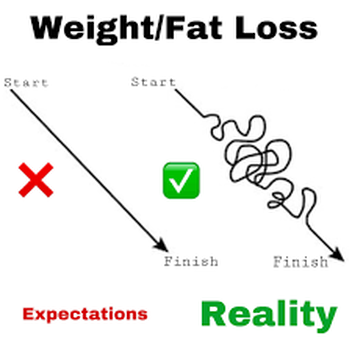

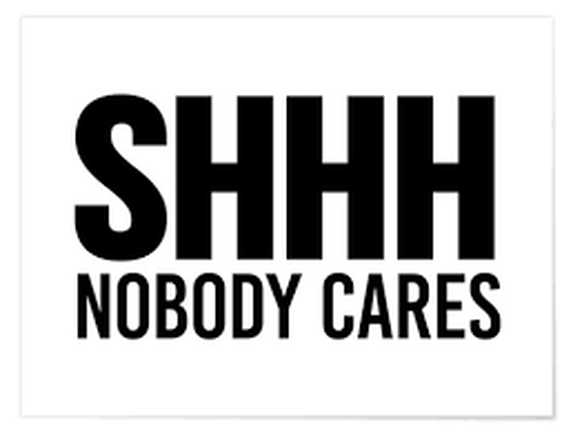
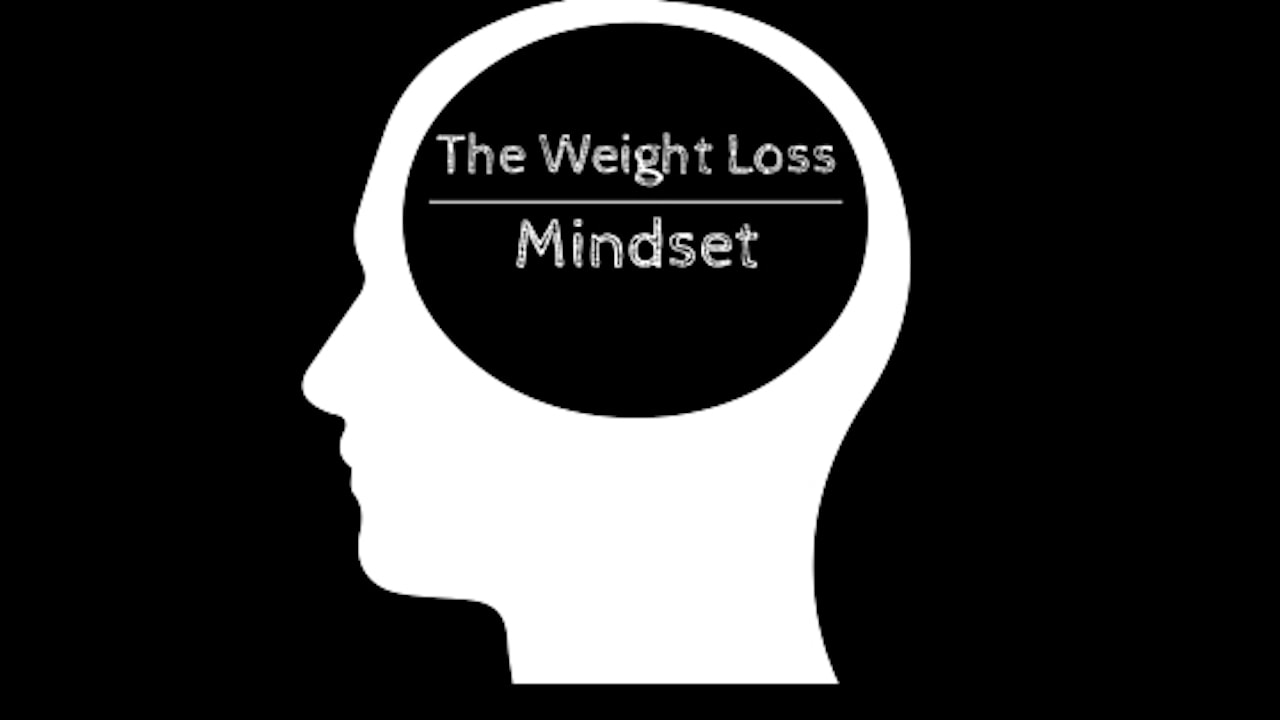
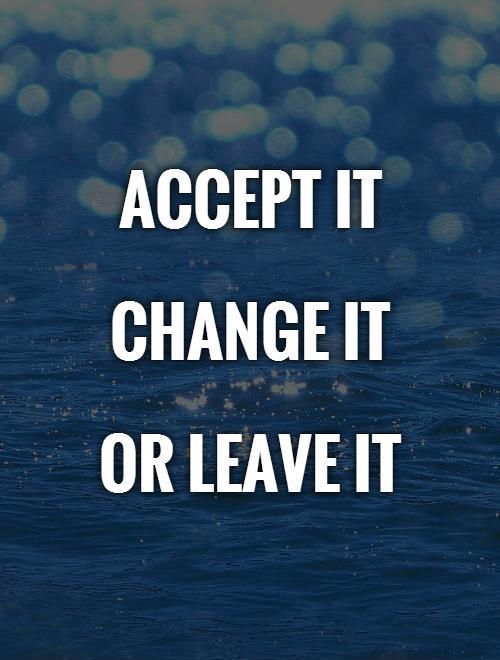



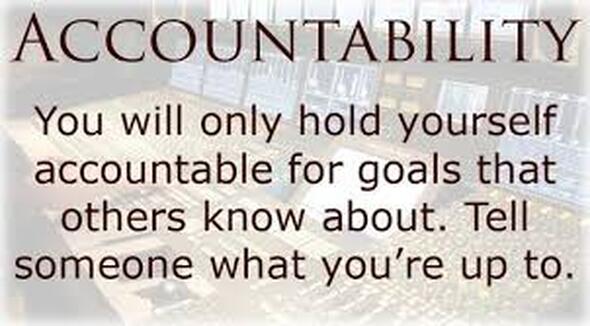

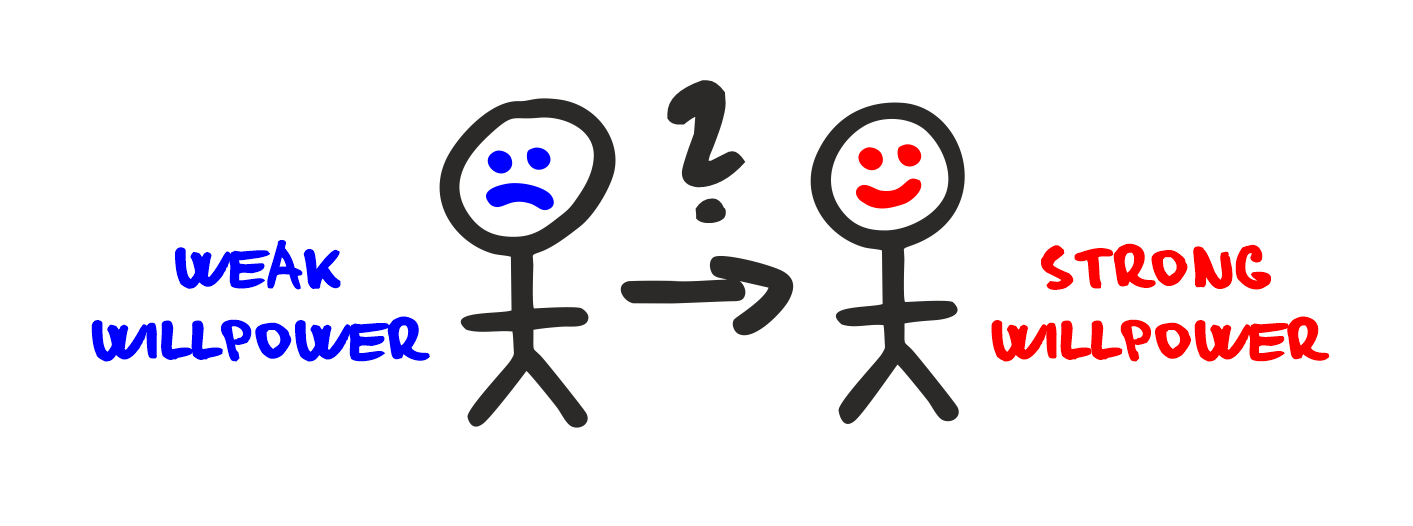
 RSS Feed
RSS Feed